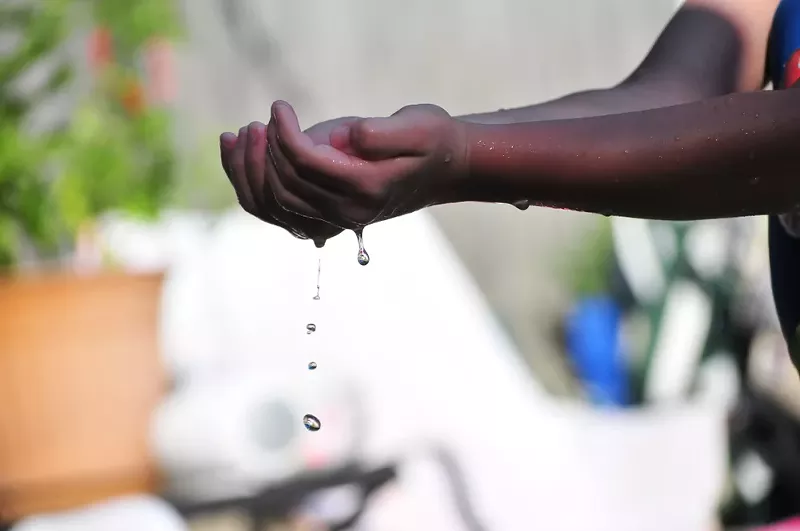
Audio By Carbonatix
[
{
"name": "GPT - Leaderboard - Inline - Content",
"component": "35519556",
"insertPoint": "5th",
"startingPoint": "3",
"requiredCountToDisplay": "3",
"maxInsertions": 100,
"adList": [
{
"adPreset": "LeaderboardInline"
}
]
}
]
A coalition of civil rights groups has filed a class-action lawsuit to prevent future water shutoffs in Detroit and force the city to develop an affordable payment plan.
With one of the highest water and poverty rates in the nation, Detroit has shut off water to nearly 150,000 households since 2014, drawing criticism from human rights groups, including the United Nations.
The ACLU and NAACP Legal Defense and Education Fund filed the federal lawsuit, arguing Black people are disproportionately impacted. Some families lose water service for years, and others are “trapped in a cycle of water insecurity with repeated disconnections and reconnections.”
In March, the The Detroit Water and Sewerage Department (DWSD) restored water to several thousand homes as the coronavirus began to spread.
Gov. Gretchen Whitmer on Wednesday extended an executive order that protects residents from water shutoffs until the end of the year.
“For 15 years our civil rights coalition has been fighting at every level of government to permanently put an end to water shutoffs, a policy that harms the health and wellbeing of impoverished Black Detroiters,” Mark Fancher, director of the ACLU of Michigan’s Racial Justice Project, says in a news release. “While the Governor's temporary moratorium on water shutoffs during the pandemic is a step forward, the moratorium will expire and Detroiters will once again be left without solutions and with huge bills they cannot possibly afford, forcing residents back into the cycle of water shutoffs. It is time to throw shutoffs on the dust heap of deeply disturbing practices that contribute to the structural racism our nation is finally attempting to dismantle.”
One of the plaintiffs is Jacqueline Taylor, a Black homeowner who lived without water from mid-2018 to March 2020, when the city restored the service because of the coronavirus. Taylor, who has an average monthly income of $860, was over-billed while she was in the hospital and a rehabilitation center for a hip replacement, according to the lawsuit. When she was unable to pay nearly 6,000 in back payments, the city shut off her water.
In 2018, the city shut off water to Lisa Brooks, who is Black, and her two teenage children, for about a year because she couldn't afford her bill. She has chronic health problems and gets by on $1,200 a month from Social Security benefits. Her service was reconnected in 2019 when she entered into a payment plan with DWSD, but once again she fell behind and her water was shut off later that year in the winter.
The lawsuit alleges the city’s water shutoff policy violates the civil rights of thousands of residents because water is essential to their health.
“People cannot live without water, families can’t function without it, and communities cannot be safe if they don’t have water before, during and when the pandemic ends,” Alice B. Jennings, a Detroit-based attorney involved in the suit, says in a news release. “Every leader in Michigan has a moral responsibility to make sure families have access to water. Solutions have been implemented in other cities across the country, and Detroit families deserve a solution too. We urge state and city officials to come together immediately to create a water affordability plan. It is the fair and humane thing to do.”
DWSD plans to hold a news conference at 11 a.m. Friday to address the lawsuit. In the past, city officials have said that water rates will inevitably increase to compensate for residents who don’t pay their bills.
Stay on top of Detroit news and views. Sign up for our weekly issue newsletter delivered each Wednesday.







